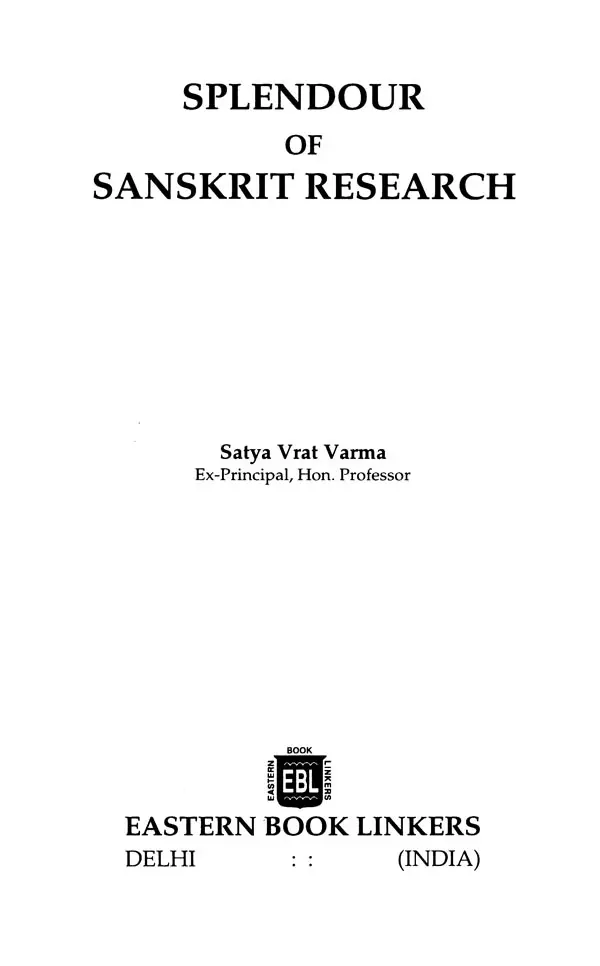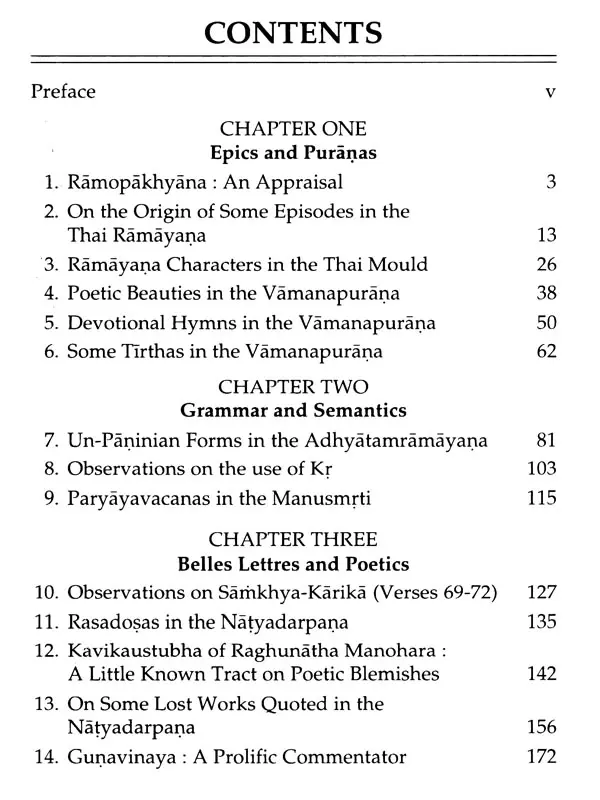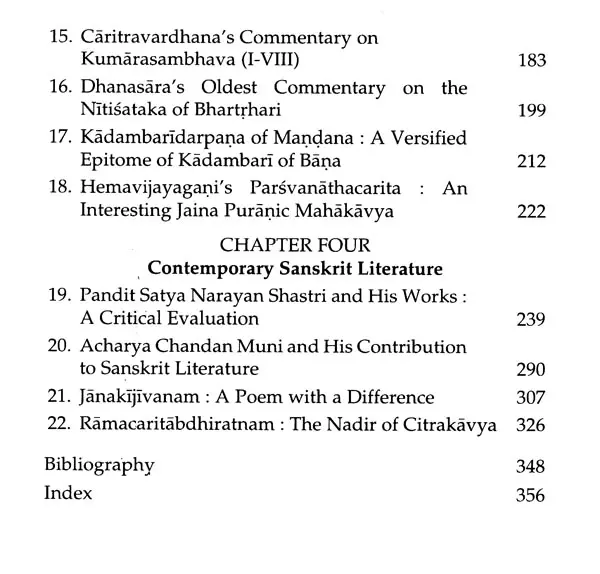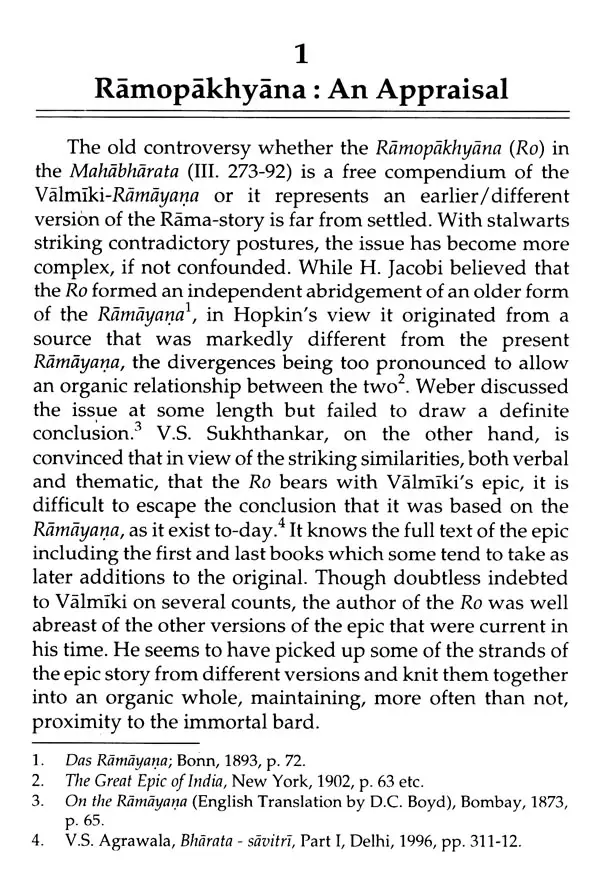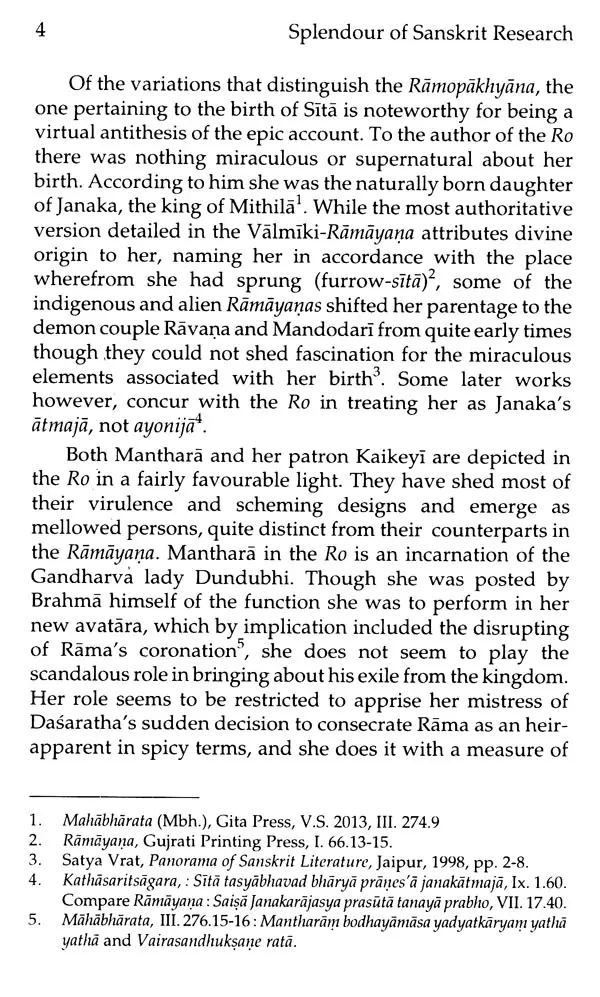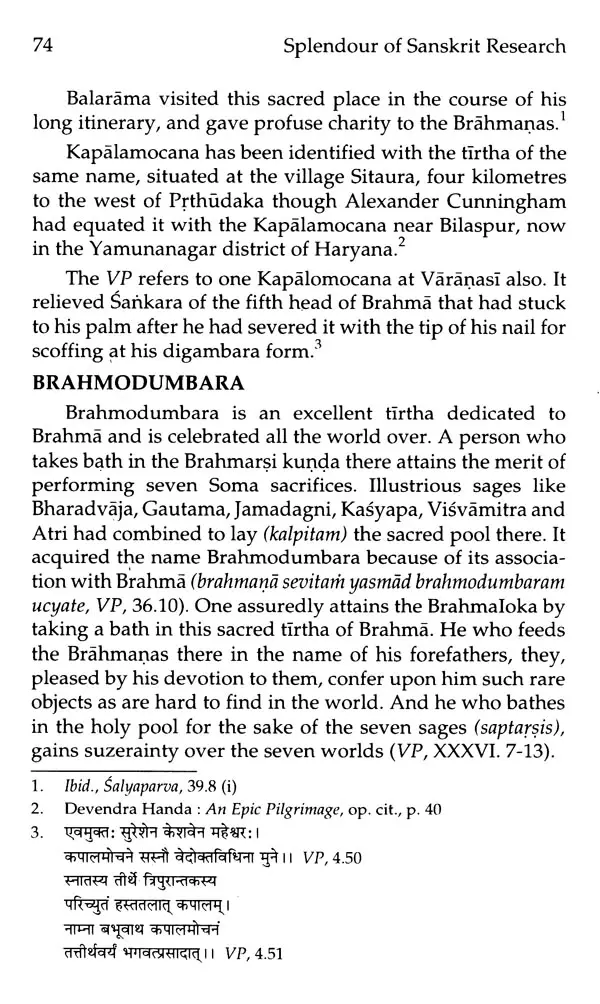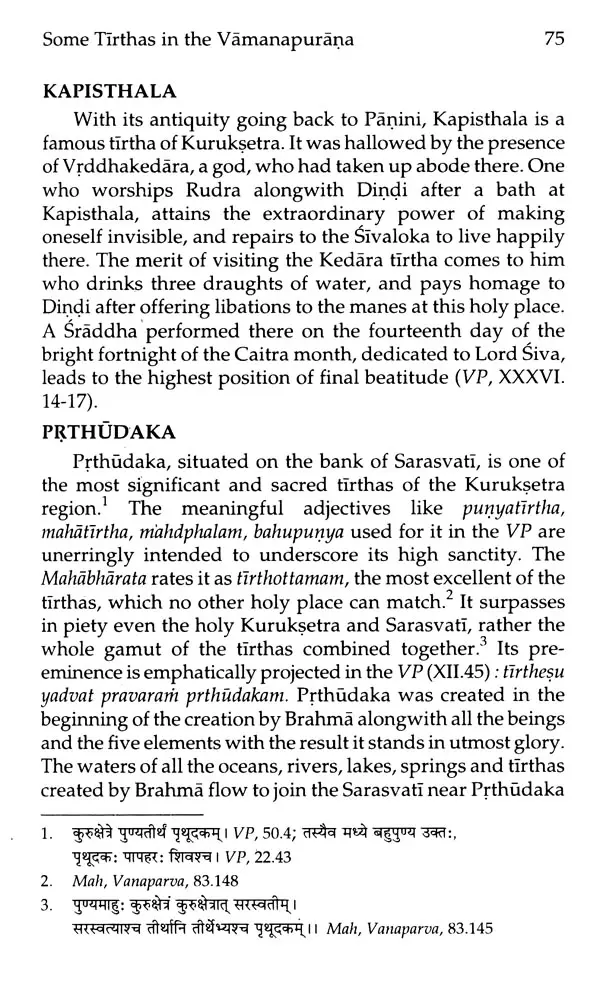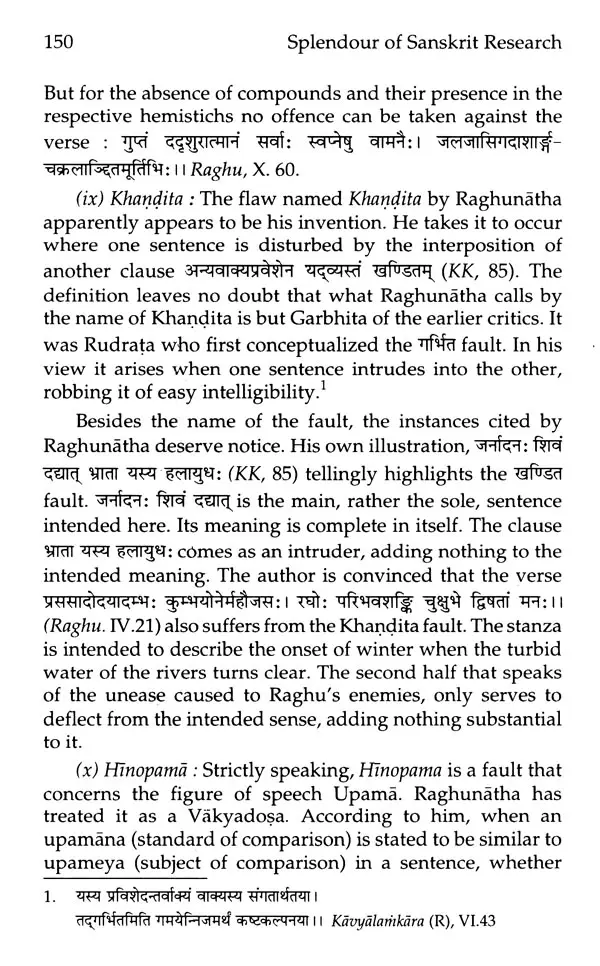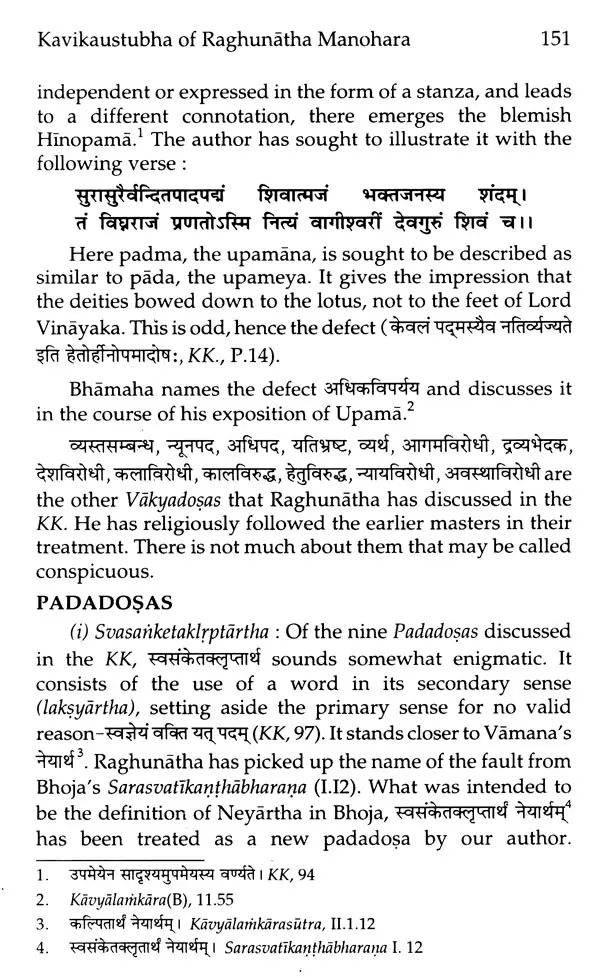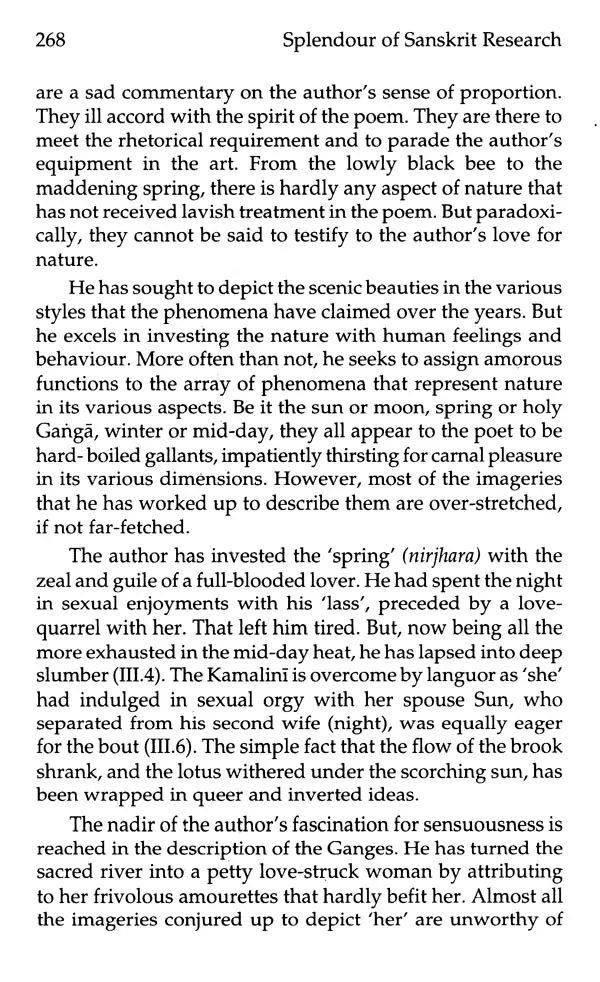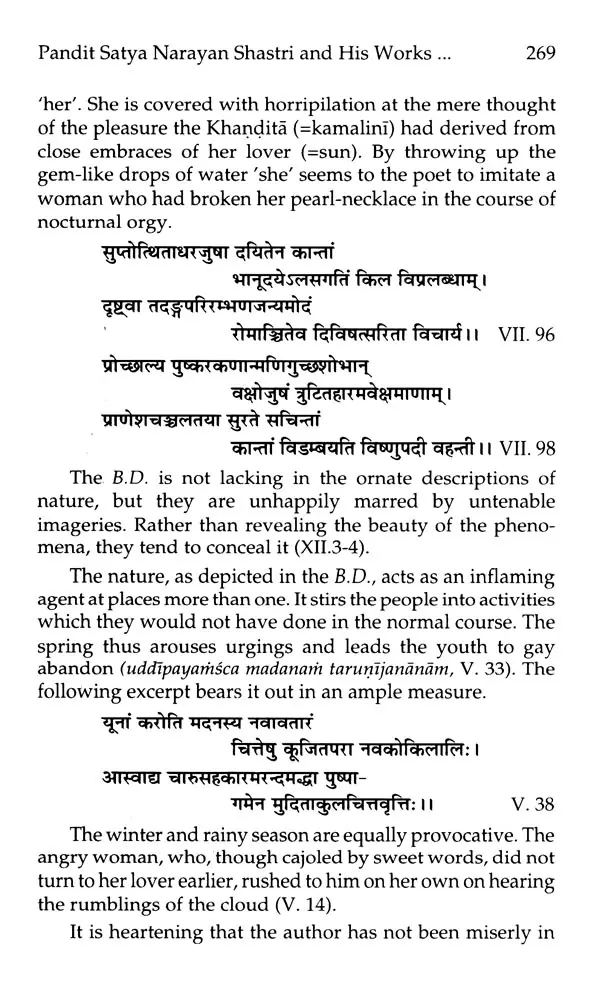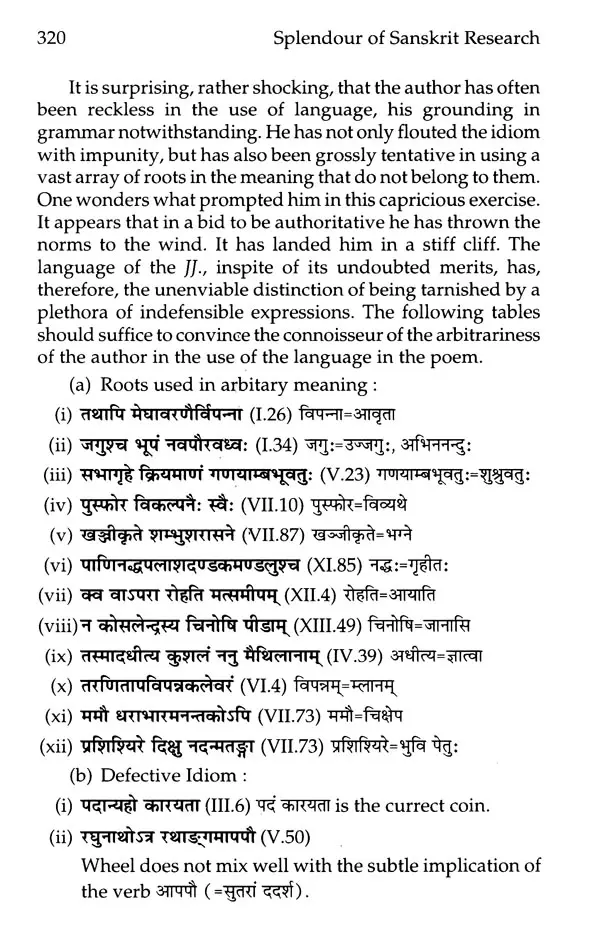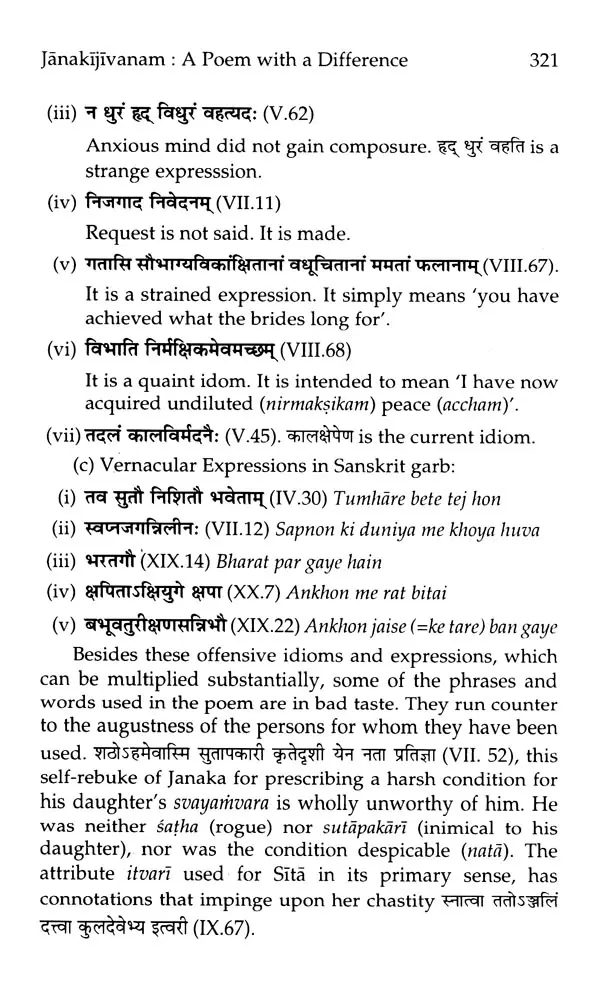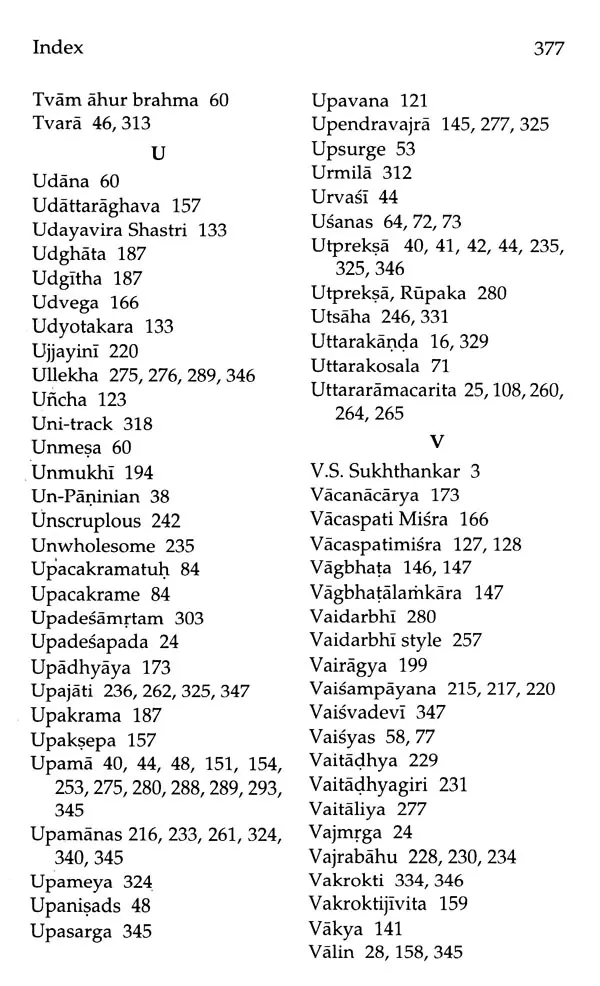
Splendour of Sanskrit Research
Book Specification
| Item Code: | UAI161 |
| Author: | Satya Vrat Verma |
| Publisher: | Eastern Book Linkers |
| Language: | English and Sanskrit |
| Edition: | 2015 |
| ISBN: | 9788178542904 |
| Pages: | 390 |
| Cover: | HARDCOVER |
| Other Details | 9.00 X 6.00 inch |
| Weight | 630 gm |
Book Description
The book provides sumptuous fare to the cultured reader and the connoisseur alike.
Dr. Varma is well-equipped in English, Sanskrit and Hindi. He writes in all the three languages with equal felicity and ease. His rich contributions to the various branches of Sanskrit learning including the Jaina Belles Letters have brought him name and fame. He has authored till date thirty books which include the ten translated into English from Sanskrit. Of his original works Satyasudhei : A Critical Evaluation of Dr. Satya Vrat Shastri's Creative Works, Glimpses of jaina Sanskrit Mahakavyas, Mandana and His Works : An Appraisal, Panorama of Sanskrit Literature, Sarhskrta-godha-peiriffita, Thus Spoke Emperor Ashoka have evoked wide interest. His translation of the voluminous Mahasubhasita-sarilgraha (Vol. VIII-IX), Nagarasarvasvam, Hanumaddittam (Nitya Nand Shastri), Bhakteimarastotram, Navodhavilasam, Nitidhanada Mtakam among others, has established him as a talented translator. He has moreover contributed over two hundred research papers and articles to prestigious journals and magazines. There is hardly any journal of note to which he has not contributed over the years. Though a Sanskrit’s, his interests stretch to such diverse disciplines as Ancient Indian History, Numismatics and Iconography. Dr. Varma's zeal for writing is matched by his administrative competence. He retired as P.G. Principal from the Rajasthan Education Service. Even after his retirement from service, seventeen years ago, he is pursuing his literary activities with unabated vigor. Dr. Satya Vrat is recipient of a number of Awards and Honors including the prestigious President of India Certificate of Honor, Govt. of Rajasthan Award, Rajasthan Sanskrit Academy Award and Sanskrit Seva Parisad (Jaipur) Award.
The introduction of Sanskrit to the west some two hundred years ago was an epoch-making event. The close structural and linguistic affinities that the Sanskrit language bears with the classical and some of the modem languages of Europe took the European linguists by storm. Their profound investigations into the astounding phenomenon resulted in the emergence of the science of comparative Philology which served to highlight the happy fact that most of the so-called modem linguistic speculations were unerringly 'anticipated by the Vedic linguists and the master grammarian Panini as far back as the fifth century B.C. and earlier. But more than anything else, the contact with the west served to impart an altogether new orientation to Sanskrit, facilitating a critical and comparative evaluates of the whole gamut of its literature. That opened up next vistas in the domain of Sanskrit studies, and was chief instrumental in unraveling the wisdom enshrined in the great literature which serves to guide humanity to great.
spiritual, moral and intellectual heights.
The Splendor of Sanskrit Research represents in essence the outcome of our sustained investigations, carried out of the years, in the various disciplines of Sanskrit literature though have happily brought to the fore some notable new fact interpretations and conclusions. While in view of as many as 86 parallel passages that the Ramopakhyana of the Mahabharata shares with the Ramayana, as we have it now, would be, as first adduced by Sukthankar, reasonable to treies: it as an epitome of the Valmlki-Riimiiya1Ja, but the conspicuous divergences that it betrays from Valmiki ten to prove that. it is not the whole truth. As averred in to study of the Ramopakhyana, with which the 'Splendor' open though it sticks by and large to Valmiki's version, it indebted to some other versions of the epic story as well.
Book's Contents and Sample Pages
